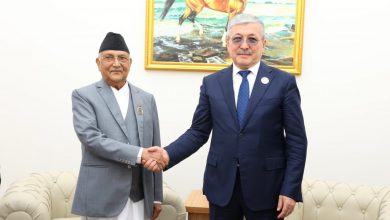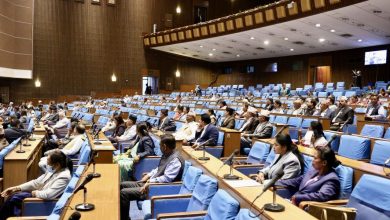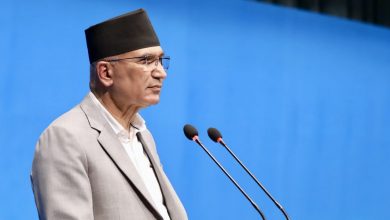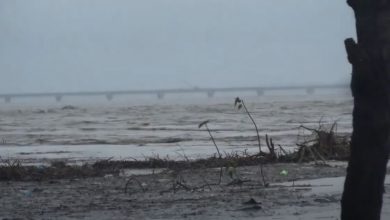PM Oli Calls for Stronger Global Partnership to Overcome LLDC Challenges

Awaza, Turkmenistan – August 5: Prime Minister KP Sharma Oli has stressed the need for stronger political will and renewed global partnerships to address the persistent challenges faced by LLDCs.
Addressing the Third United Nations Conference on Landlocked Developing Countries (LLDCs) in Awaza, Turkmenistan on behalf of the Group of Least Developed Countries (LDCs), PM Oli highlighted the ongoing structural barriers faced by LLDCs, including geographical isolation, high trade and transit costs, inadequate transport networks, and limited regional and global market access. He pointed out that nearly half of the LLDCs are also LDCs, which further compounds their vulnerabilities.
“Despite two decades of global commitments from Almaty to Vienna, LLDCs still struggle with infrastructure deficits, limited diversification, and climate vulnerability,” he said.
The Head of the government of Nepal also underlined the importance of the Awaza Programme of Action in tackling these barriers, describing it as a renewed opportunity to unlock the development potential of LLDCs. He called for “smarter investments, inclusive partnerships and coordinated action” to transition LLDCs into “land-linked, trade-competitive, and climate-resilient” economies.
Emphasizing the role of technology and digital innovation, PM Oli said LLDCs must harness digital tools to overcome physical limitations. He welcomed the five priorities outlined in the Awaza Programme—structural transformation, trade facilitation, connectivity, climate resilience, and means of implementation—as a clear path toward inclusive and sustainable development.
In his national capacity, PM Oli reiterated Nepal’s commitment to transforming itself from a landlocked to a land-linked country, highlighting national investments in transport infrastructure, digital corridors, and cross-border connectivity with India and China.
“As a landlocked LDC graduating next year, Nepal continues to face challenges of high transport costs and limited regional integration. However, with smart infrastructure and strong cooperation, we aim to turn these barriers into gateways of opportunity,” he said.
Prime Minister Oli concluded by stating that geography must no longer determine destiny and affirmed Nepal’s readiness to work collectively as a partner in shaping a resilient and connected future for all LLDCs.









Comments